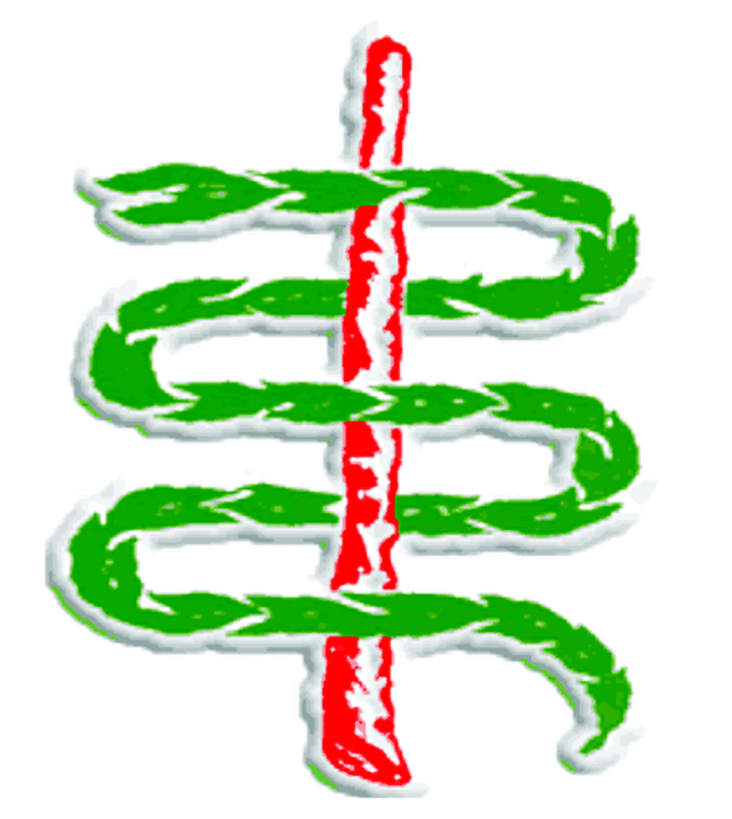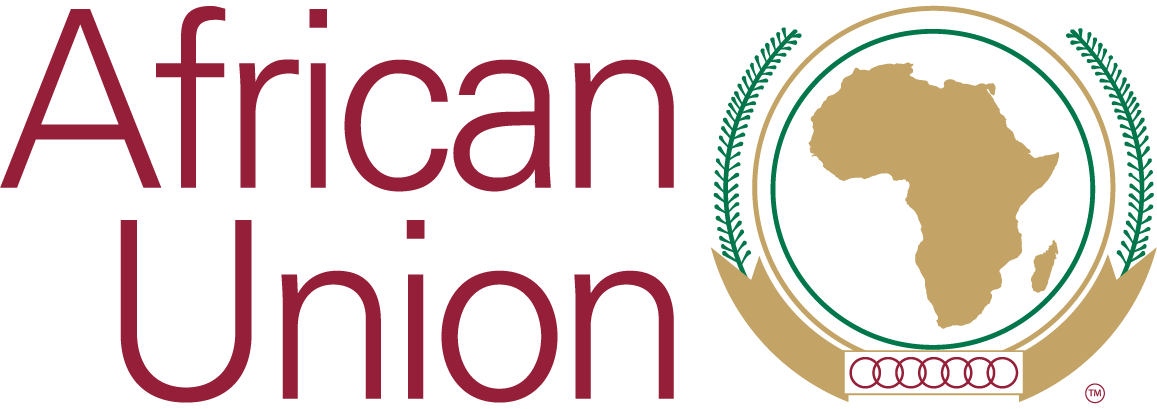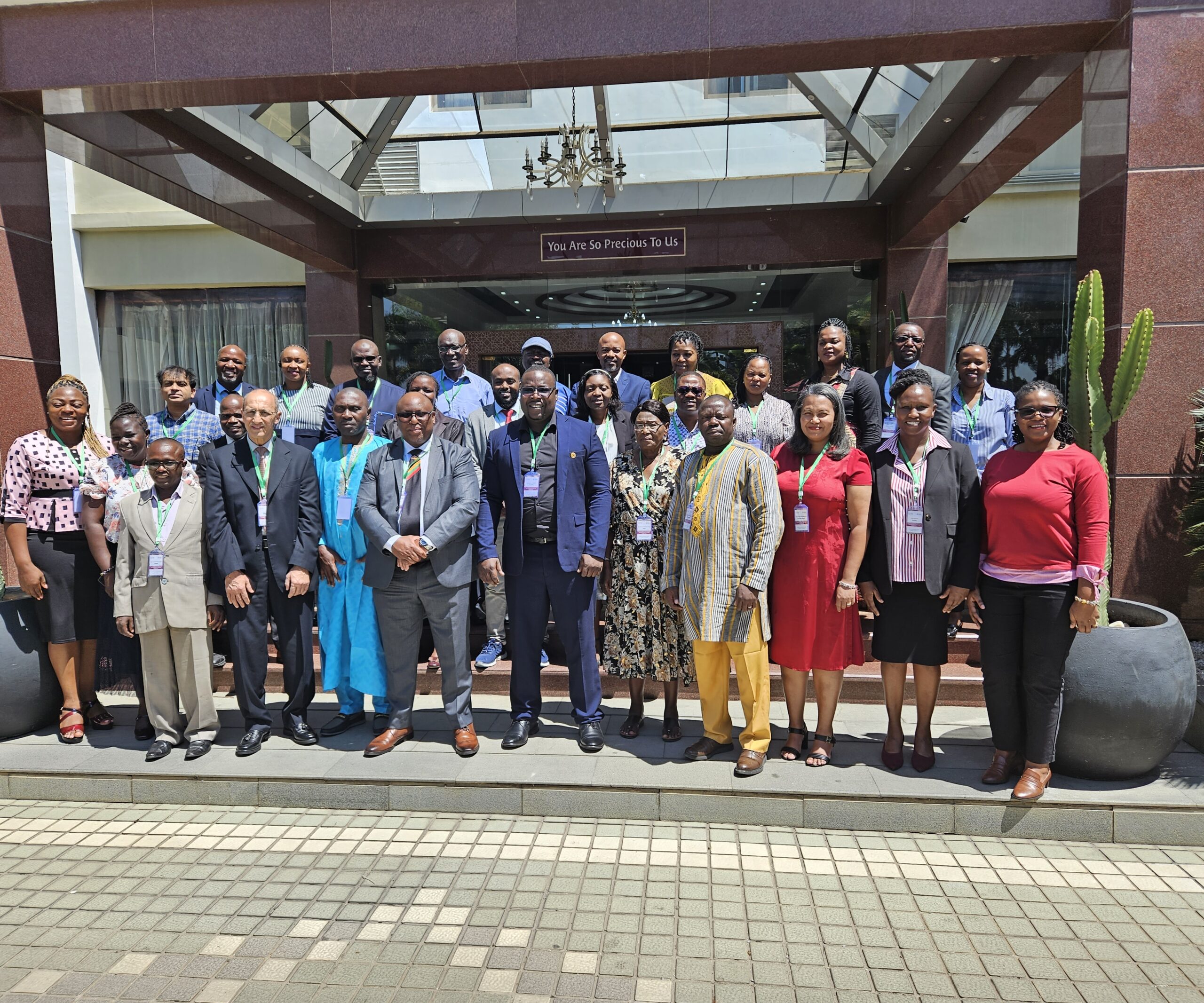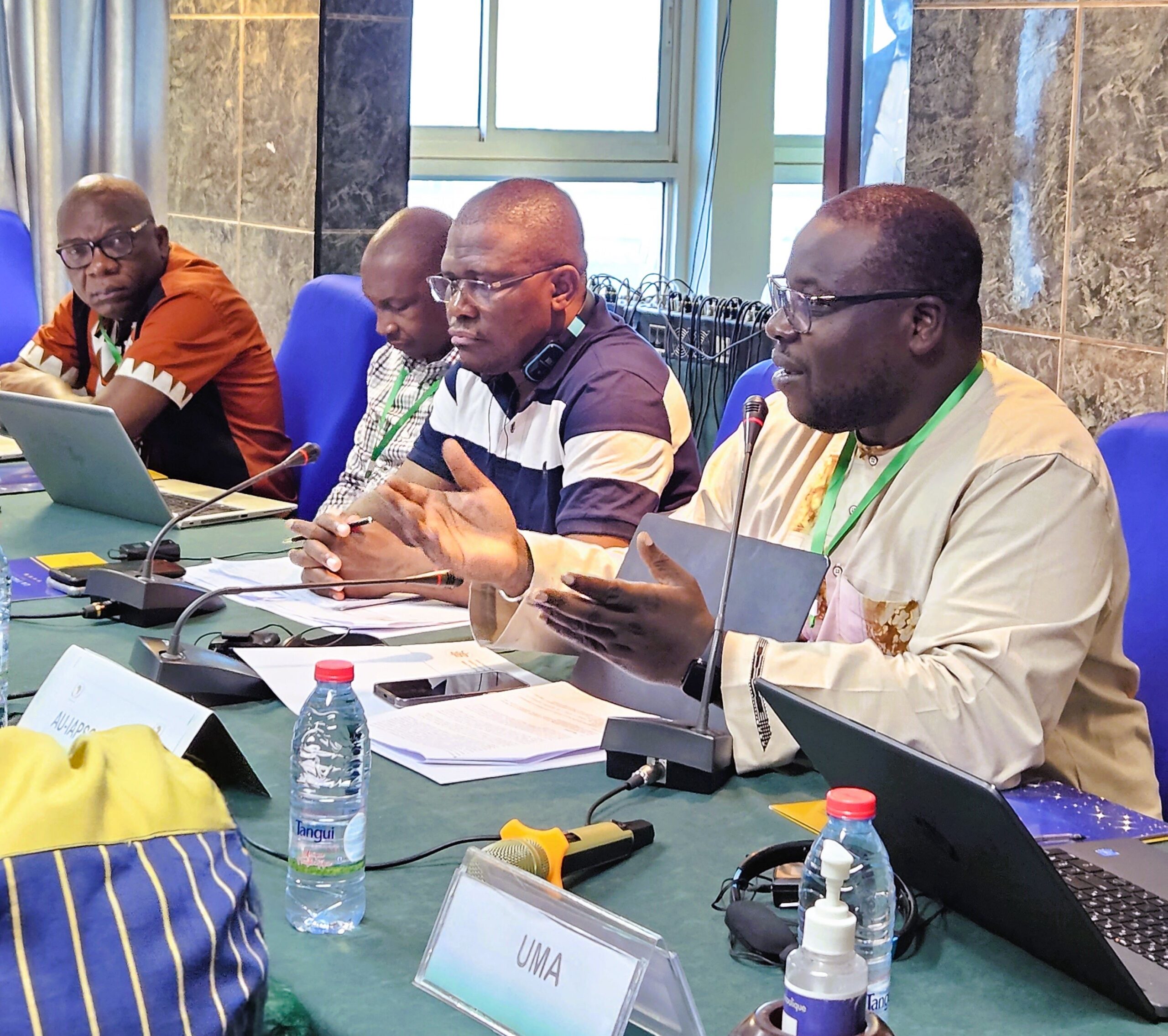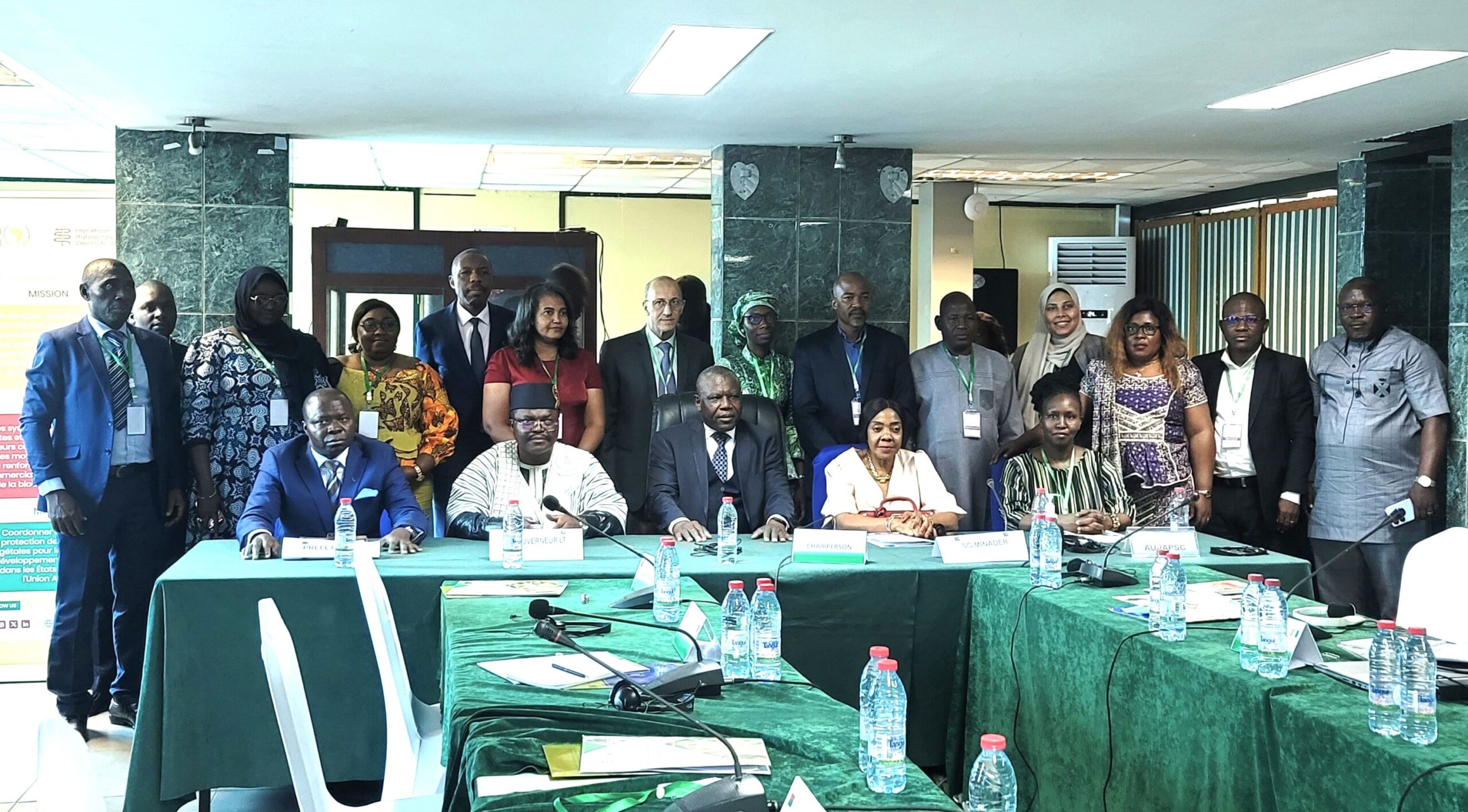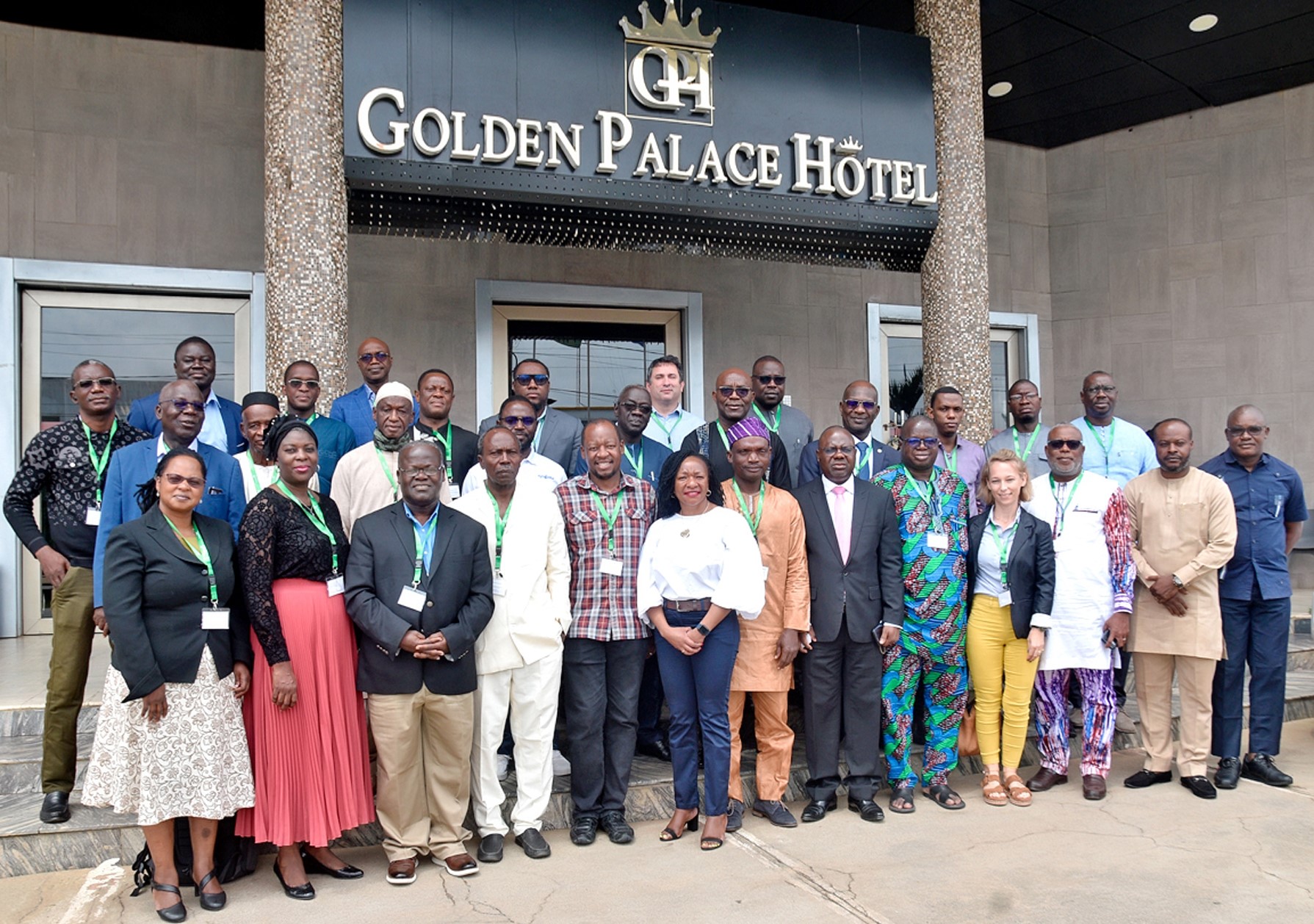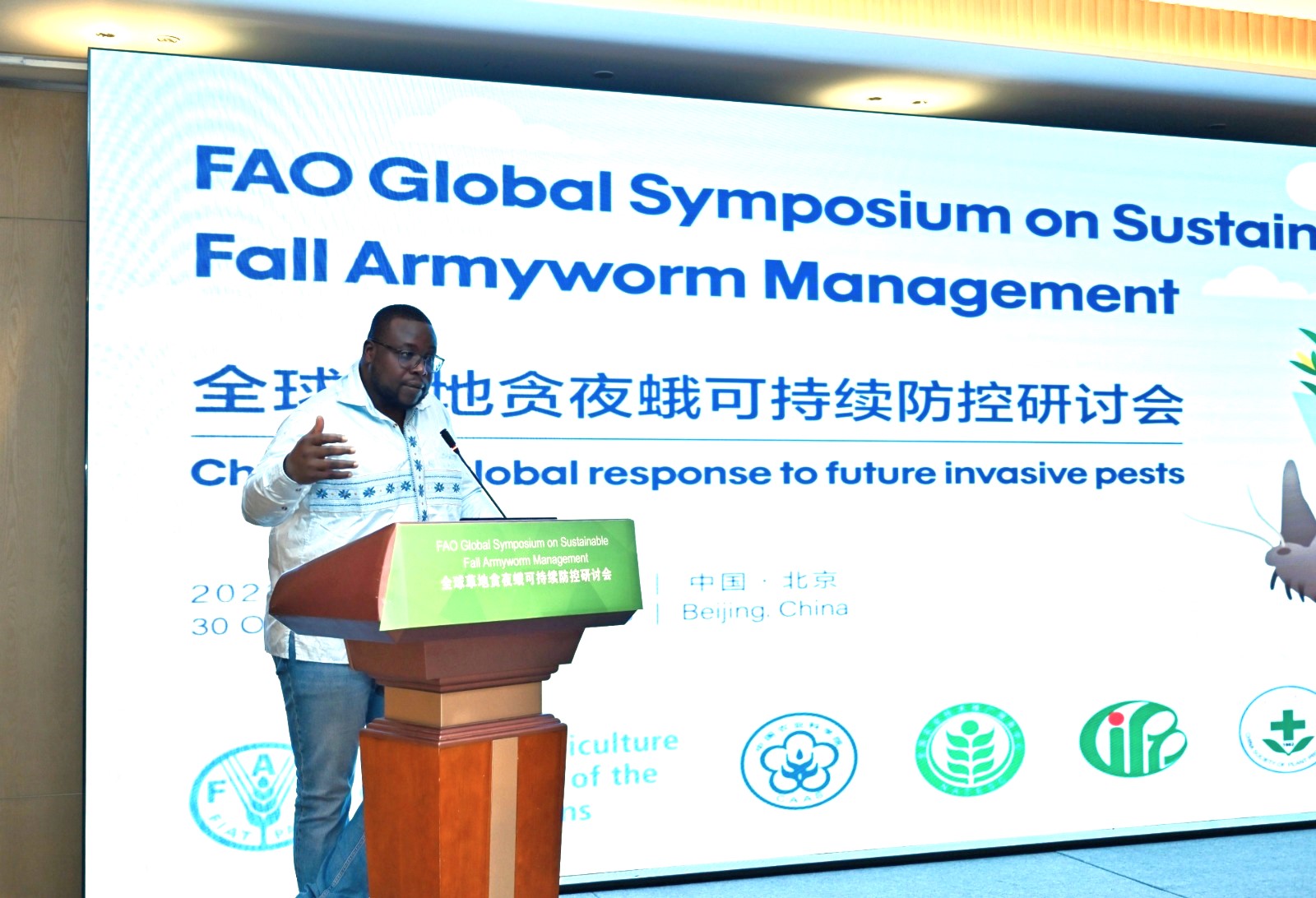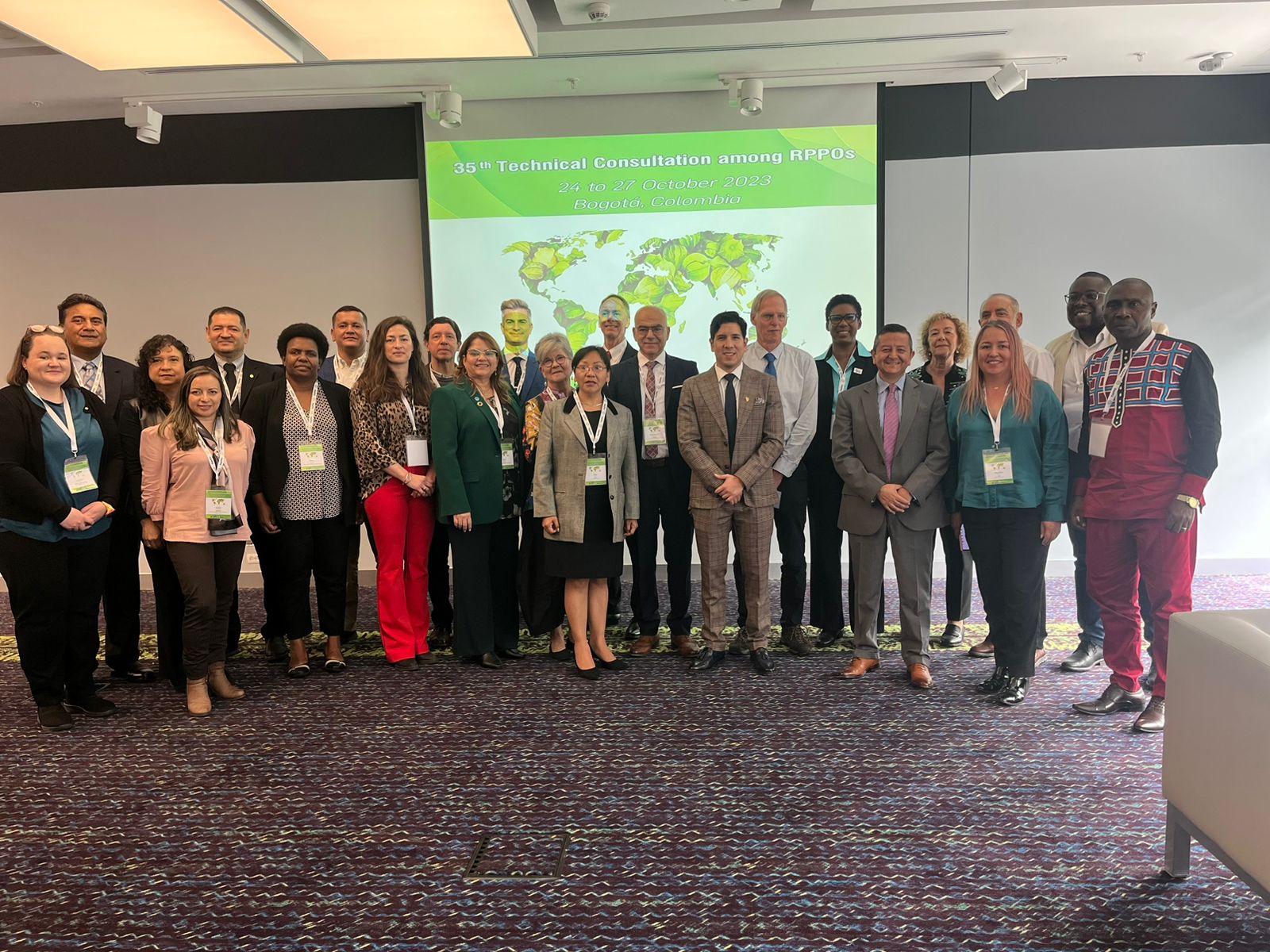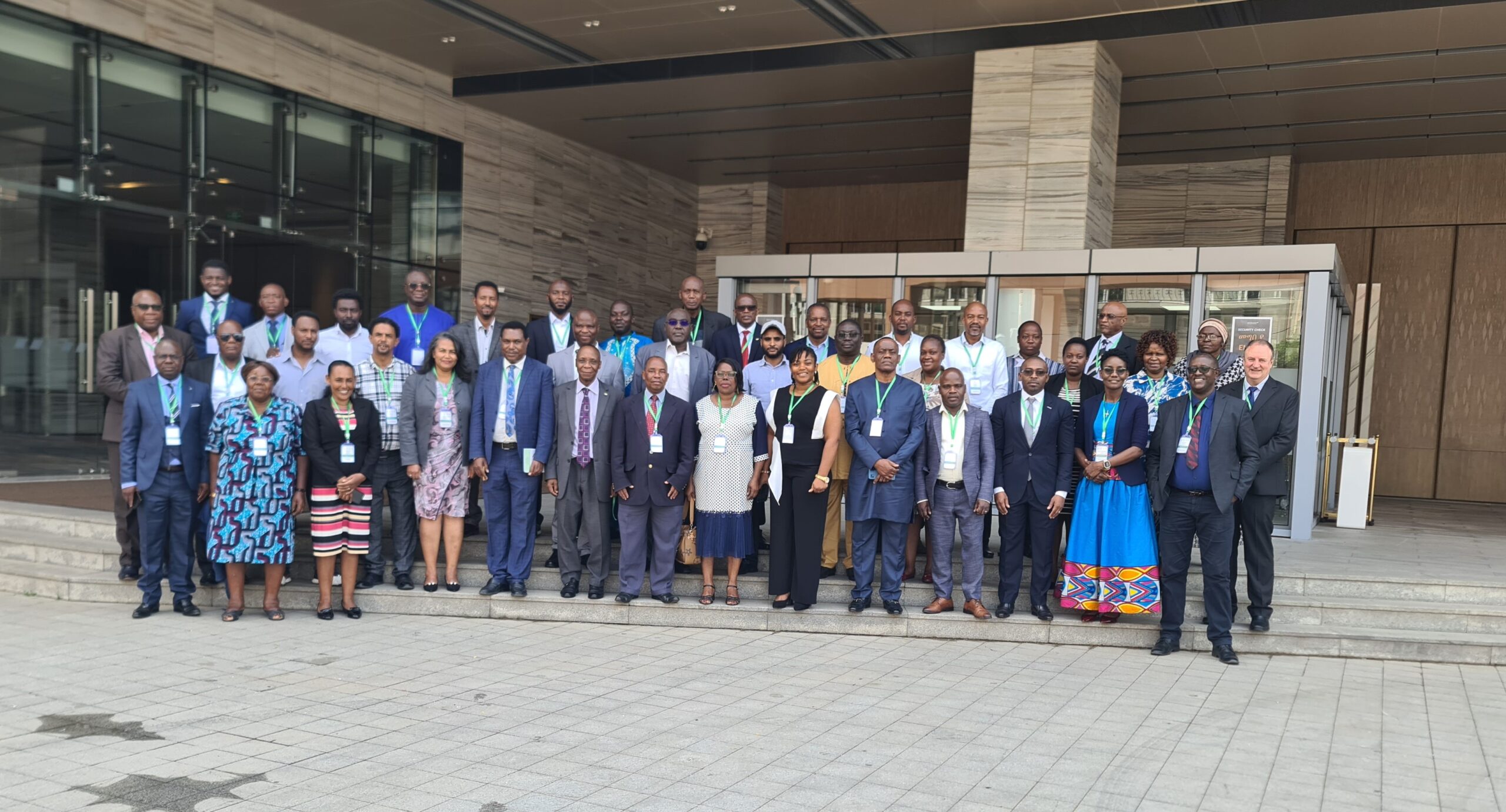Events
Events
24 May 2024EventsThe International Day of Plant Health 2024, organized by the Interafrican Phytosanitary Council of African Union (AU-IAPSC) concluded on a satisfactory note and further commitment of all stakeholders in the Plant Heath Community to support sustainable agriculture for safe trade and nutrition security.
Across all regional plant protection organizations, the International Day of Plant Health 2024 was celebrated under the theme of “Plant health, safe trade and digital technology.” The focus was on raising awareness and taking action to promote healthy plants, ensure food safety, and facilitate safe trade for sustainable economies and livelihoods. Various activities and events were organized to highlight the importance of plant health and the role of digital technology in safeguarding plants. Overall, the celebrations aimed to emphasize the critical need for improved communication, collaboration and action to protect plant health and support sustainable agriculture.
The event took place on May 15th, instead of the dedicated May 12th, owing to conflicting agendas at AU-IAPSC, around a Webinar organized on the occasion with distinguished speakers across the continent who made outstanding presentations. The presentations and related agenda are shown below:
Topic 1: Intelligent Systems in Pest Management: The Intersection of AI and Biological Control for Plant Health and Trade Safety, by Mr.Komi Agboka (icipe)
Topic 2: The role of digital technology in enhancing timely plant health management, by Mrs. Raymonda Johnson (NPPO, Sierra Leone)
Topic 3: The role of communication in Plant health management, by Claude Tenkeu (AU-IAPSC)
Topic 4: Advancing Plant health in Africa: Harnessing Digital Technology for safe trade, by Fernadis Makale (CABI)
Topic 5: The AfCFTA catalysing trade in plants and plants products, by Diana Akullo (AU-AfCFTA)
Topic 6: Agroecology : Future of Sustainable Plant Health and Nutrition, by Derrick Ngigi HSC (PurePlant Organics)
Topic 7: ephyto application for enhanced food security, agricultural productivity, plant health and trade facilitation, by Josiah Syanda (KEPHIS)
More that 150 participants took part in the online event with resounding contributions that brought forth seminal scientific ideas to rekindle plant health endeavours across the continent.
As the event came to a close around 5:30 pm, participants’ enthusiasm could still be felt with even more willingness to further discussions.speakers [...]
Read more...
4 December 2023Events / Non classéPlant Health Strategy for Africa implementation under review
AU-IAPSC has this week brought together African member states and key players & partners in the plant health sector to jointly review, revise and validate the draft implementation plan for the Plant Health Strategy for Africa.
The Plant Health Strategy was developed to achieve a vibrant, robust and practical plant health system for Africa to improve food safety, food and nutrition security, improved livelihoods and trade.
The meeting taking place in Lusaka- Zambia has drawn together member states from Ghana, Zimbabwe, Kenya, Malawi, Somalia, Burundi, Morocco, Mozambique, Senegal, Madagascar, Bukina Faso, Chad, Cameroon and the host Zambia.
Regional Economic Communities (RECs) and other development partners include East African Community (EAC), International Institute of Tropical Agriculture (IITA), Centre for Agriculture and Bioscience International (CABI), The African Continental Free Trade Area (AfCFTA), The International Centre of Insect Physiology and Ecology (icipe) and CropLifeAfrica.
Opening the meeting, AU-IAPSC Coordinator Dr Saliou Niassy stressed that the meeting was key in ensuring the effective implementation of the strategy, which seeks to enhance productivity and trade and strengthen regional collaboration for smoother agricultural trade between African nations.
“In that line, the objectives of the strategy directly speaks to the needs of the Agricultural sector which is vital, supporting livelihoods and ensuring food availability; it’s a major employer in Africa, providing jobs for about 60-70% of the population and a crucial source of livelihood for many, especially in rural areas,” he said.
Concurring with Niassy, Director of the National Plant Protection Organization (NPPO) of Zambia Dr Kenn Msiska asserted that the strategy was a critical component in providing sustainable solutions to the continent, hence the meeting offers a great opportunity to unpack what can jointly work for all member states and various stakeholders.
“This world is faced with the enormous challenge of pest introduction and spread and it is just right that Africa as a continent, has something to guide its concerted efforts of controlling and managing pests of
economic importance” he said.
At the meeting, presentations, discussions, deliberations and group work are unpacking some key approaches that remain key including coordination mechanisms to ensure that the strategy is implemented efficiently and effectively in all member states. [...]
Read more...
24 November 2023EventsInter-African Phytosanitary Council of the African Union (AU-IAPSC), has reiterated its commitment to ensuring that African member states and regional economic communities (RECs) are thoroughly supported in their various efforts towards protection and promotion of plant health on the content.
The commitment was made by AU-IAPSC Coordinator Dr Saliou Niassy in Douala – Cameroon where the Specialized Technical Office is building the capacity of member states in Pest Surveillance, Inspection and Diagnostics.
This follows two other trainings held in the past two weeks in Pest Risk Analysis (PRA), Establishment of Pest-Free Places of Production and Pest-Free Production Sites for Prioritized Quarantine Pests/Prioritized Commodities.
“You can appreciate that all these trainings are part of our desire to see a region that is strengthened not only in systems and processes but also in knowledge and skills that bring out solution-based approaches to counter all challenges in the plant health field,” he said.
He stressed that doubling as the Specialized Technical Office for the AU and also the Regional Plant Protection Organization (RPPO) for Africa for the International Plant Protection Convention (IPPC), AU-IAPSC takes its role seriously in its quest to champion the coordination of activities across the continent.
“Beyond the coordination mandate, AU-IAPSC is eager to see that our efforts go beyond these trainings and other forms of capacity building. We want to engage more, reach out further, reinforce partnerships and fortify what we have already built over the years with all of you as we also initiate fresh avenues beneficial to our common interests as a continent,” he said.
At the height of consultations towards the implementation of the Plant Health Strategy for Africa (PHSA), AU-IAPSC also hopes that the member states and RECs will own the strategy and use it to the advantage of plant health affairs in all regions.
Through specialized coaching, presentations, group work, field visits, the trainings have provided an opportunity for member states to share knowledge, skills, best practices and practical solutions implemented in their respective countries. [...]
Read more...
16 November 2023Events / Non classéAfrican member states drilled in Pest Risk Analysis for trade facilitation
Over 20 plant health scientists and experts from African member states have convened in Cameroon’s economic capital Douala, for a specialized training workshop on the Pest Risk Analysis (PRA) for trade facilitation across the continent.
The training has been organized by Inter-African Phytosanitary Council of the African Union (AU-IAPSC) as part of its mandate to coordinate and implement decisions relating to phytosanitary activities across the continent.
PRA is a conventional scientific tool that provides countries with the ability to protect their plant resources from pests and fulfil their international obligations by supporting various types of national programmes.
It also therefore provides countries with justification for trade bans and other non-tariff measures.
AU-IAPSC Coordinator Dr Saliou Niassy in his opening remarks said the 4-day training will build the capacity of the participating member states through National Plant Protection Organizations (NPPOs) on the steps of the PRA process, the necessary resources and the importance of having usable national data.
He said PRA resonated well with the objectives of the Plant Health Strategy for Africa (PHSA) whose successful implementation will also depend on, among many factors, capacity building for research, pest monitoring management strategies.
“We are also looking at imparting member states with knowledge and information on how to gather and update feedback on the latest information on PRA and to create strong networking among them,” he said.
Beyond capacity, the training would provide member states with the necessary knowledge to enable them adhere to phytosanitary conditions outlined by World Trade Organisation (WTO) and International Plant Protection Convention (IPPC) to facilitate international markets while sustaining food security.
Minister of Agriculture for the Republic of Cameroon Mr Gabriel Mbairobe officially opened the training, stressing that the PRA training is essential not only for effective pest control for farms and agricultural premises, but also for economic purposes.
“Pest species are cause for major concern, not only due to the potential loss of revenue due to crop damage but, if left untreated, they can also cause significant damage to machinery, equipment and property as well,” he said.
He worried over current statistics that indicate plant pests and pathogens damage the agriculture severely, endangering food security and causing production losses of 20%–40%, which represent around US$ 40 billion per year worldwide.
The training will also provide an opportunity for NPPOs to share best practices and implementation strategies around pests and diseases.
Member states available for the training include DRC, Comoros, Cote d’Ivoire, Egypt, Gabon, Guinee Conakry, Kenya, Madagascar, Malawi, Mali, Mauritania, Morocco, Namibia, Niger, Senegal, Tanzania, Zambia and the host Cameroon.
Practical training sessions on PRA tools and Horizon Scanning Tool by experts from Centre for Agriculture and Bioscience International (CABI) are also part of the training. [...]
Read more...
13 November 2023EventsA harmonized approach in pest control among various stakeholders is pivotal in sustainable pesticide management in order to achieve food security across the African continent.
This was emphasized at a just-ended two-day workshop in Grand Bassam, Côte d’Ivoire where over 30 experts from West and Central Africa subregion convened to engage and discuss diverse topics around risk assessment, mitigation and implementation of a globally harmonized system in pest control.
The gathering took time to share experiences and lessons and share best practices that are adaptable to the sub-region, to contribute to a sustainable pesticides management for both food security and safety attainment.
High on the agenda was also the use of drones in pesticides application use, an advanced method among many technological advances and applications in the agricultural sector.
” offer more benefits and opportunities such as more precise and effective with GPS-guided applications, access to difficult areas, reduce operator exposure, likely reduce drift, potentially easier implementation of mode of action, potential lower cost…” says an extract from CropLife International on the assessment for drone use in pesticide application.
Among the recommendations from the meeting was the need to identify experts for continuous for regulatory support on exposure assessment and provision of support for regional policy to ensure that Personal Protective Equipment is both availability and affordable.
The gathering also offered an opportunity for practical discussions on how the subregion can enhance the capacity of regulatory authorities on regulatory issues, among many key needs of the continent.
The participants comprised of national and regional regulatory and/or registration officers, representatives of regional organizations including Inter-African Phytosanitary Council of the African Union (AU-IAPSC). [...]
Read more...
8 November 2023Events / Non classéAfrican Union Inter-African Phytosanitary Council (AU-IAPSC) has called on stakeholders in the Global Action for Fall Armyworm Control (GA) and the entire plant health sector not to sleep on their laurels on Fall Armyworm management, seven years after the first reported case in Africa.
The call was made by AU-IAPSC Coordinator Dr Saliou Niassy at the recent Global Symposium on Sustainable Fall Armyworm Management organized by FAO in Beijing, China.
The Symposium brought together various stakeholders including researchers, academicians, scientists, policy makers under the theme “charting a global response to future invasive pests” as part of continued response towards the management of Fall Armyworm across the globe.
In his presentation on leveraging on regional networks to manage invasive pests, Dr Niassy noted that the fight against Fall Armyworm is not just continuous, but demands concerted efforts that embrace the changing needs of the plant health sector.
He emphasized on the need to embrace research yielded technologies as one of the best tactics to combat FAW outbreaks, given the numerous global technological advancements available to management of pests and diseases.
While sharing the significant milestones registered in the management of Fall Armyworm across the African continent, he admitted the threat to food security remains high, hence the need to stay alert, leave no stone unturned and utilize the joint efforts in combating it.
Of the notable achievements and outcomes through the peak of the outbreaks is the level of coordination and collaboration that were birthed to exchange knowledge and skills, provide technical expertise, build consensus on relevant matters and ultimately implement solutions together, he said.
He further added that leveraging networks remains crucial in the fight against FAW in critical areas such as implementation of early warning systems; coordinating, pest reporting, sharing information and record keeping among members states of the African Union through National Plant Protection organizations (NPPO’s).
Dr Niassy challenged the participants with candid self-reflectory questions on their management of FAW by their respective entities;
“Seven years down the line since first reporting, if we knew what we now know about Fall Armyworm, would things be different? What could we have done better? Now that we all know so much about FAW, what is the way forward?.”
The Symposium provided an opportunity for various key players in the agricultural and other sectors to share knowledge, sustainable management practices and draw lessons from global actions. [...]
Read more...
25 October 2023Events / Non classéRPPOs convene in Colombia for inter-regional cooperation
AU-IAPSC is taking part in the 35th Technical Consultation among Regional Plant Protection Organizations (TC-RPPOs) which is currently underway in Bogotá Colombia.
The meeting has brought together over 30 participants from the nine of the ten Regional Plant Protection Organizations and is convened by the Secretary of the International Plant Protection Convention (IPPC) Mr Osama El-Lissy.
The forum seeks to discuss issues of common global interest and as the RPPO responsible for Africa, AU-IAPSC is looking forward to tabling and deliberating various matters of interest, support and collaboration for the African continent.
Specifically, AU-IAPSC through its Coordinator Dr Saliou Niassy and the Assistant Senior Scientific Officer Nana Sani, will seize the opportunity to present the Plant Health Strategy for Africa (PHSA), which was developed to achieve a vibrant, robust and practical plant health systems in Africa.
Also on high agenda at the meeting is the promotion of inter-regional cooperation in promoting harmonized phytosanitary measures, and the development and use of relevant international standards for phytosanitary measures for controlling pests and in preventing their spread and/or introduction.
Other RPPO’s include the Asia and Pacific Plant Protection Commission (APPPC), Caribbean Agricultural Health and Food Safety Agency (CAHFSA), Comunidad Andina (CAN), Comite de Sanidad Vegetal del Cono Sur (COSAVE), European and Mediterranean Plant Protection Organization (EPPO), Near East Plant Protection Organization (NEPPO), North American Plant Protection Organization (NAPPO), Organismo Internacional Regional de Sanidad Agropecuaria (OIRSA) and Pacific Plant Protection Organization (PPPO). [...]
Read more...
24 October 2023Events / Non classéAU-IAPSC welcomes new chief, raises hopes for stronger collaborations, digital technology approaches
African Union Inter-African Phytosanitary Council (AU-IAPSC) has welcomed its new Coordinator, Dr Saliou Niassy, an accomplished plant health scientist and an ardent entomologist.
Before joining AU-IAPSC, Dr Niassy was a Senior Scientist and head of the Technology Transfer Unit of the International Centre of Insect Physiology and Ecology (ICIPE), an international scientific research institute headquartered in Nairobi, Kenya.
He holds a PhD in Zoology (Entomology) from Jomo Kenyatta University of Agriculture and Technology (JKUAT). He also has a Master’s and Bachelor’s Degrees in Natural Sciences and a Postgraduate Degree in Zoology from the Cheikh Anta Diop University of Dakar (Senegal).
A Senegalese national, Dr Niassy was the first Coordinator of AfroMont (2011 and 2013) and the Coordinator of the Land Matrix Initiative (2015 and 2017) at the University of Pretoria in South Africa. He has also worked as a Postdoctoral Fellow on Thrips Bioecology at icipe under an AU-funded Grain Legume project between 2013-2015.
He is a member of the African Association of Insect Scientists (AAIS), of which he served as Secretary between 2013-2017 and then as President between 2017-2022. He is also the editor-in-chief of the International Journal of Tropical Insect Science. He has published over 120 peer-reviewed articles, books and book chapters on plant health issues.
His notable accomplishments, among many others, include biopesticide development, the discovery of thrips aggregation behaviour and aggregation pheromones, continent-wide inventory of edible insects, scaling of push-pull technology in 20 Sub-Saharan African countries, fall armyworm, fruit fly research, as well as validation of indigenous pest management in African cropping systems.
Dr Niassy takes over from Dr Jean Gerard Mezui M’ella, who led AU-IAPSC for 12 years.
Sharing his vision and plans for his new role, Dr Niassy says among many goals, he looks forward to leading AU-IAPSC in building new and strengthening existing partnerships with all key stakeholders in the plant health sector beyond the continent.
Specifically, Dr Niassy is excited to work with all National Plant Protection Organizations (NPPOs) and relevant technical entities such as the International Plant Protection Convention (IPPC), Centre for Agriculture and Bioscience International (CABI), International Institute of Tropical Agriculture (IITA), International Centre of Insect Physiology and Ecology (ICIPE), International Maize and Wheat Improvement Center (CIMMYT), WorldVeg, donor communities and other Specialized Technical Offices of the African Union, to drive the implementation of the Plant Health Strategy for Africa (PHSA) to enhance food and nutrition security, improved livelihoods and trade.
Given AU-IAPSC’s multiple roles as a Specialized Technical Office (STO) for the African Union and also IPPC’s Regional Plant Protection Organization responsible (RPPO) for Africa, Dr Niassy hopes to lead with new and advanced approaches, all the work in coordinating plant health activities across the African continent.
Using his scientific and technological background, he also anticipates leading AU-IAPSC in harnessing and embracing advanced data science and modelling approaches for evidence-based policymaking whilst helping member states and RECs maximize in both the promotion and protection of plant health resources.
“Technological advancements are moving so fast for every sector that we can no longer rest on our laurels, we must take maximum advantage of the technological trends to seek sustainable solutions to everyday challenges in agriculture and to collaborate with our partners and harmonize our resources to enhance agricultural productivity for income and trade,” he said.
Dr Niassy will be based at the AU-IAPSC host country, Yaoundé – Cameroon.
We wish Dr Niassy the very best as he sets the new course in leading AU-IAPSC towards its goal of promoting and coordinating sustainable plant health systems among continental, regional and national actors for increased agricultural production and market access. [...]
Read more...
28 September 2023Events / Non classéAfrican countries harness scientific advances, digital technology to prevent plant pests
Eleven African countries are taking part in a training on advanced plant health science and state-of-the-art digital tools that will better equip field staff and administrators to make timely decisions to prevent plant pest outbreaks.
The Train-the-Trainer workshop, taking place from 25-29 September 2023 in Cairo, Egypt, introduces the first phase of the Africa Phytosanitary Programme (APP), a new regional initiative designed to profoundly boost the technical capacity of Africa’s phytosanitary personnel in all 54 countries.
The novel programme, led by the International Plant Protection Convention (IPPC) Secretariat, in collaboration with the African Union Commission on Agriculture, aims at equipping national plant protection organizations with science-based approaches, advanced technology and tools to monitor, prevent, detect, and manage significant plant pests and diseases that threaten food security, the environment and economic growth.
Africa loses billions of dollars in crop damages each year from pests, which impacts food security and economic growth. One example of these pesky pests is Fall Armyworm which causes about USD 9.4 billion loss worth of crops annually. Globally, as much as 40 percent of crop yield is lost to plant pests, which translates to about USD 220 billion in economic losses.
Addressing the pest problem in Africa calls for the use of science and technology in the timely detection of pests of economic and environmental significance to help policy makers and plant health communities make informed decisions on pest prevention, containment or eradication, as well as trade related matters.
At the training therefore, each training participant will receive the most current scientific approaches and state-of-the-art electronic data collection and reporting tools for timely decision-making on pest prevention. A customized mobile app will improve the efficiency of field staff in collecting, recording and using data on plant pests, even in remote areas with no internet connection. Once the device is back online, data is automatically updated, allowing personnel to take the necessary steps to prevent or respond to a pest threat.
The app also provides guidelines on how to detect a wide range of pests that each participating country has listed as a priority for monitoring and prevention.
Training participants are from Cameroon, Democratic Republic of Congo, Egypt, Guinea Bissau, Kenya, Mali, Morocco, Sierra Leone, Uganda, Zambia and Zimbabwe – the countries in the first phase of APP. They are expected to train field staff in their respective countries in a bid to strengthen national capacity to prevent pests.
Speaking on behalf of the Minister of Agriculture and Land Reclamation in Egypt, Dr. Ahmed Abdelmageed, the Director of the Egypt Plant Protection Research Institute, officiated at the workshop and welcomed participants.
” We as the Egyptian government are certain that the training will lead to the composition of a pool of experts who will spread and disseminate the knowledge and technology to their countries at the end of the day. Thanks to IPPC and FAO, the African countries will be able to mitigate the risks and enhance the abilities of detection, diagnosis and pest monitoring,” he said.
“We think also that the training will support achievement of the SDGs, Egypt 2030 Vision and Africa 2063 Vision,” he added.
“The connections between plant pests, crop losses and food shortages are evident in Africa,” said Jennifer Moffitt, Under Secretary of Agriculture for Marketing and Regulatory Programs, United States Department of Agriculture (USDA). “With plant pests undermining crop production and causing losses between 30-60 percent annually, the need for effective pest management strategies that address the detrimental effects of plant pests and animal diseases is critical,” she said.
“To ably deal with plant pests, the IPPC is working with the Food and Agriculture Organization of the United Nations (FAO), the African Union, USDA and partners to strengthen the capability of phytosanitary experts in the region. Increased capacity through the Africa Phytosanitary Programme will help safeguard food security and limit trade disruption of plants and plant products, ultimately contributing to achieving national, regional and global development goals,” said Osama El-Lissy, IPPC Secretary.
“On behalf of the IPPC community, we express our sincere appreciation and gratitude to the government of Egypt for its leadership and for hosting this important event,” he said.
“The tools we are using in today’s training, generously developed and shared by the Animal and Plant Health Inspection Service (APHIS) at USDA, will sharpen the technical competencies of Africa’s plant health experts and grow their arsenal of tools against plant pests,” he added.
Low capacity in phytosanitary diagnostic and reporting infrastructure remains a key weakness in Africa’s plant health system, as highlighted in the Plant Health Strategy for Africa 2022-2036. The APP is envisioned to fill the gap by empowering national authorities with the capacity necessary to rapidly detect and respond to plant pests.
“To help African countries eliminate hunger and reduce poverty by raising economic growth through agriculture-led development, it is essential to enhance the continent’s phytosanitary capacity and its productivity in the agricultural sector”, said Her Excellency Josefa Sacko, the African Union Commissioner, Department of Agriculture, Rural Development, Blue Economy and Sustainable Development. She was represented by Dr. Sandrine Mariella Bayendi Loudit, Senior Scientific Officer, Entomology at the African- Union, Inter-African phytosanitary Council (AU-IAPSC).
Be assured that the African Union Commission with its mandated Specialized Technical Office the Inter-African Phytosanitary Council (IAPSC) will provide the overall strategic coordination among NPPOs and RECs; while continuing to foster the plant health strategy for Africa on the continent.
“The Africa Phytosanitary Programme intends to enhance African regional collaboration on emerging plant health issues, especially those related to food security, climate change and economic growth. I therefore urge participants to seize this opportunity to learn more to address the burning plant health problems in the continent by protecting agriculture and natural resources against the introduction and spread of plant pests and diseases,” she added.
“Plant protection is essential for ensuring food security and sustaining livelihoods of many farmers, producers and rural communities in Africa. Amidst a host of challenges, from pest outbreaks, conflicts, civil instability, and climate change, many African countries face difficulties in ensuring plant health and maintaining functional phytosanitary systems,” said Dr AbdulHakim Elwaer, FAO Assistant Director- General and Regional Representative for the Near East and North Africa.
“On behalf of FAO, I congratulate the IPPC and partners for starting the Africa Phytosanitary Programme, which I believe will help countries to improve their capacity to collect, produce and analyse data for policy formulation and improved plant protection”, he added.
About FAO
The Food and Agriculture Organization (FAO) is a specialized agency of the United Nations that leads international efforts to defeat hunger. FAO’s objective is to achieve food security for all and make sure that people have regular access to enough high-quality food to lead active, healthy lives. FAO works to transform agri-food systems by promoting sustainable production and consumption, including protecting the world’s plants to achieve global food security. FAO works in over 130 countries worldwide and has 195 members – 194 countries and the European Union.
About IPPC
The IPPC is an international treaty ratified by 184 countries, aiming to protect the world’s plant resources from the spread and introduction of pests, and promoting safe trade. International Standards for Phytosanitary Measures (ISPMs), developed under the auspices of the IPPC, assist countries in implementing national phytosanitary standards and import requirements. The IPPC, deposited at FAO, is the sole global standard-setting entity for plant health. [...]
Read more...
6 September 2023Events / Non classéIPPC regional workshop sets tone for the Africa Phytosanitary Programme
Over 40 African member states are this week gathered in Addis-Ababa, Ethiopia for this year’s IPPC Regional Workshop for Africa under the theme “Plant Health for Environmental Protection.”
Taking the centre stage at the meeting is the introduction and launch of the Africa Phytosanitary Programme (APP) which is poised to promote effective management of plant pests and diseases on the continent and help foster social and economic growth.
During the workshop’s opening on Monday, IPPC Secretary Mr. Osama El-Lissy, while reiterating the significance of the program, called member states through National Plant Protection Organizations (NPPO’s) to take full responsibility of the APP and own it, for efficient and effective results.
He said APP was critical in the protection of plants as pests and diseases continue to cause significant crop damage around the world, with current statistics indicating that on an annual basis, pests destroy about 40% of agricultural crops including food crops.
“Among many benefits the APP will help with advancing technical skills across the board, help with trade at national, regional and international level -leading to economic growth and ultimately it will also help with food security,” he said.
He said the continent will determine most modalities of the programme as currently even the selection of countries is identified from each sub-region to undertake the pilot phase. The countries will also by themselves select the number of pests of significance, a process that will be succeeded by other developments including surveying, identification, diagnostic of pests.
In his remarks, Abebe Haile-Gabriel Assistant Director-General and Regional Representative for Africa, Food and Agriculture Organization of the United Nations (FAO) urged the member states, experts and all participants to be strategic about solutions, stressing that resolving the pest related predicament in Africa demands holistic and sustainable strategies and investment.
Speaking on behalf of her Excellency Josepha Sako, the Commissioner of Agriculture, Rural Development, Blue Economy and Sustainable Environment of the African Union Commission, Dr Sandrine Bayendi, Acting Coordinator of AU-IAPSC said the regional workshop was crucial for the continent especially for the successful implementation of African Continental Free Trade Area (AfCFTA).
“The AfCFTA is one of the flagship projects of African Union’s Agenda 2063 so any such solution that drives that agenda, and in our case to help improve management of plant health, is fundamental. We cannot talk of the protection of plants unless there is a coordinated and harmonized across the continent and AfCFTA plays a key role in that,” she said.
The IPPC Regional Workshops are held annually to help Contracting parties understand the phytosanitary realities of their countries as well helping them to build phytosanitary capacity and raise awareness on all activities related to the IPPC and to exchange national experiences at the regional level.
The participants are also taking time to learn how to effectively analyze draft International Sanitary and Phytosanitary Measures (ISPMs) and to formulate productive comments using the available draft ISPMs for member consultation; all this to strengthen phytosanitary capacity for Africa.
Through presentations, group works, field visits and other activities, participants are sharing experiences, challenges and best practices in management of plant health in their respective member states.
With the protection of natural resources as one of the areas the APP seeks to address, the workshop is also expected to deliberate the dynamics that member states through NPPO’s should consider, in tackling the climate change and its effects on plant health and subsequently on food security. [...]
Read more...

Twitter feed is not available at the moment.
